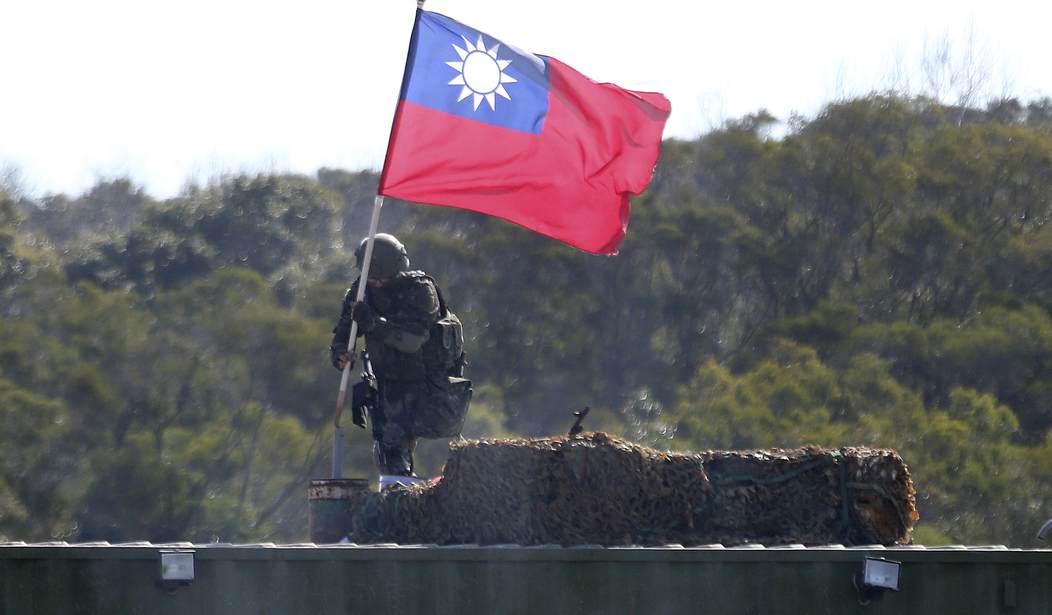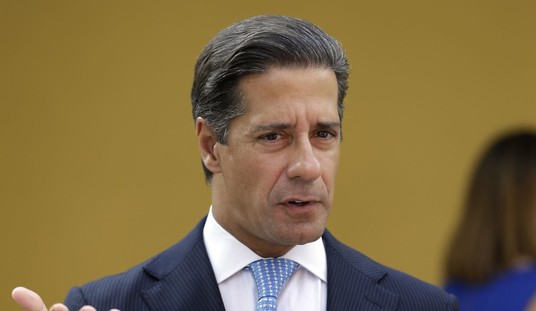China has a two-pronged strategy aimed at Taiwan right now. On the one had it continues to threaten the island by sending more than 140 warplanes and 40 warships into the area. A Taiwanese expert quoted by the South China Morning Post says this is part of China’s preparation for an eventual surprise attack.
The People’s Liberation Army has mobilised aircraft from different theatre commands to take part in an “island encirclement patrol” near Taiwan, which experts said could signal a new strategy to prepare for regional military conflicts.
The aircraft drills coincided with joint sea and air training conducted by the PLA’s Shandong aircraft carrier in the western Pacific Ocean since early this week. According to earlier reports it involved a total of 42 naval ships from the Eastern and Southern Theatre Commands…
Lu Li-shih, a former instructor at the Taiwanese naval academy in Kaohsiung, said he thought the PLA had also deployed its strategic support force, its rocket force and military units tasked with handling intelligence.
“The PLA has kicked off its all-level ‘cold start’ strategy against Taiwan,” Lu said, referring to a new military doctrine aimed at getting the Taiwanese people and forces accustomed to intensive drills, then launching a surprise attack when it decides to take real action.
The other prong of China’s strategy is to offer new opportunities for Taiwanese businesses willing to integrate themselves more tightly with the mainland. China also pushed that this week by releasing a new blueprint for integration.
The directive, issued jointly by the Chinese Communist Party’s Central Committee and the State Council, vows to make Fujian a “demonstration zone” for integrated development with Taiwan, and the “first home” for Taiwanese residents and businesses to settle in China.
The document, hailed as a “blueprint” of Taiwan’s future development by Chinese experts cited in state media, comes at a delicate moment in cross-strait relations as Taiwan gears up for its presidential election in January…
Chinese observers noted “the document is equivalent to outlining the future development blueprint of Taiwan island, which is expected to gain a broader driving force and development prospect by integrating with Fujian,” the state-run Global Times said.
Members of the pro-democracy party wasted no time telling China what it could do with its blueprint.
On Wednesday, Wang Ting-yu, a Taiwanese lawmaker from the ruling Democratic Progressive Party, said the integration plan was “ridiculous.”
“China should think about how it can take care of its bad debts, but not how it can conduct united front work against Taiwan,” Wang said in a video message, referring to government-affiliated efforts to advance Beijing’s goals overseas.
The reference to China’s current economic problems is relevant. Some are suggesting that right now might be a good time for China to do something dramatic to change the subject from the CCP’s poor handling of the economy. A renewed focus on Taiwan might do that.
The US is also responding by announcing it will divert money earmarked for Egypt to Taiwan instead:
The Biden administration has notified Congress that it will withhold $85 million in aid to Egypt that had been conditioned on Egypt’s progress on human rights issues and the release of political prisoners, instead diverting that money to Taiwan and Lebanon, a person with direct knowledge told CNN.
The administration said it would redirect $55 million worth of that funding to Taiwan and $30 million to Lebanon, the person said.
Finally, Elon Musk also wound up in the middle of this argument yesterday when he made a comment comparing Taiwan to Hawaii.
Speaking remotely at the All-in Summit, which took place in Los Angeles this week, Musk compared Taiwan’s relationship with China to that of Hawaii’s with the United States.
“[Beijing’s] policy has been to sort of reunite Taiwan with China,” said the Tesla (TSLA) CEO, who claimed he understands China “well.”
“From their standpoint, you know, maybe it’s analogous to like Hawaii or something like that, like an integral part of China that is arbitrarily not part of China mostly because … the US Pacific Fleet has stopped any sort of reunification effort by force.”
Xi Jinping himself must have been pleased by that explanation. Musk has a major Tesla factory in China which is critical to his business so it’s probably no surprise that he is toeing the Chinese line on Taiwan. Still, it is disappointing and Taiwan’s foreign minister was quick to respond.
Hope @elonmusk can also ask the #CCP to open @X to its people. Perhaps he thinks banning it is a good policy, like turning off @Starlink to thwart #Ukraine’s counterstrike against #Russia. Listen up, #Taiwan is not part of the #PRC & certainly not for sale! JW https://t.co/HEhyTYYXFp
— 外交部 Ministry of Foreign Affairs, ROC (Taiwan) 🇹🇼 (@MOFA_Taiwan) September 13, 2023
Twitter has never been available in China for obvious reasons. The foreign minister makes a fair point that Musk and others with business interests in China often seem willing to tiptoe around the communist party’s iron grip on its citizens to avoid rocking the boat. With his comments on Taiwan, Musk isn’t doing much better than the NBA and LeBron James did when it came to Hong Kong. And we all know how that worked out.
Update: This report from the WSJ was released in May and still seems relevant.








Join the conversation as a VIP Member